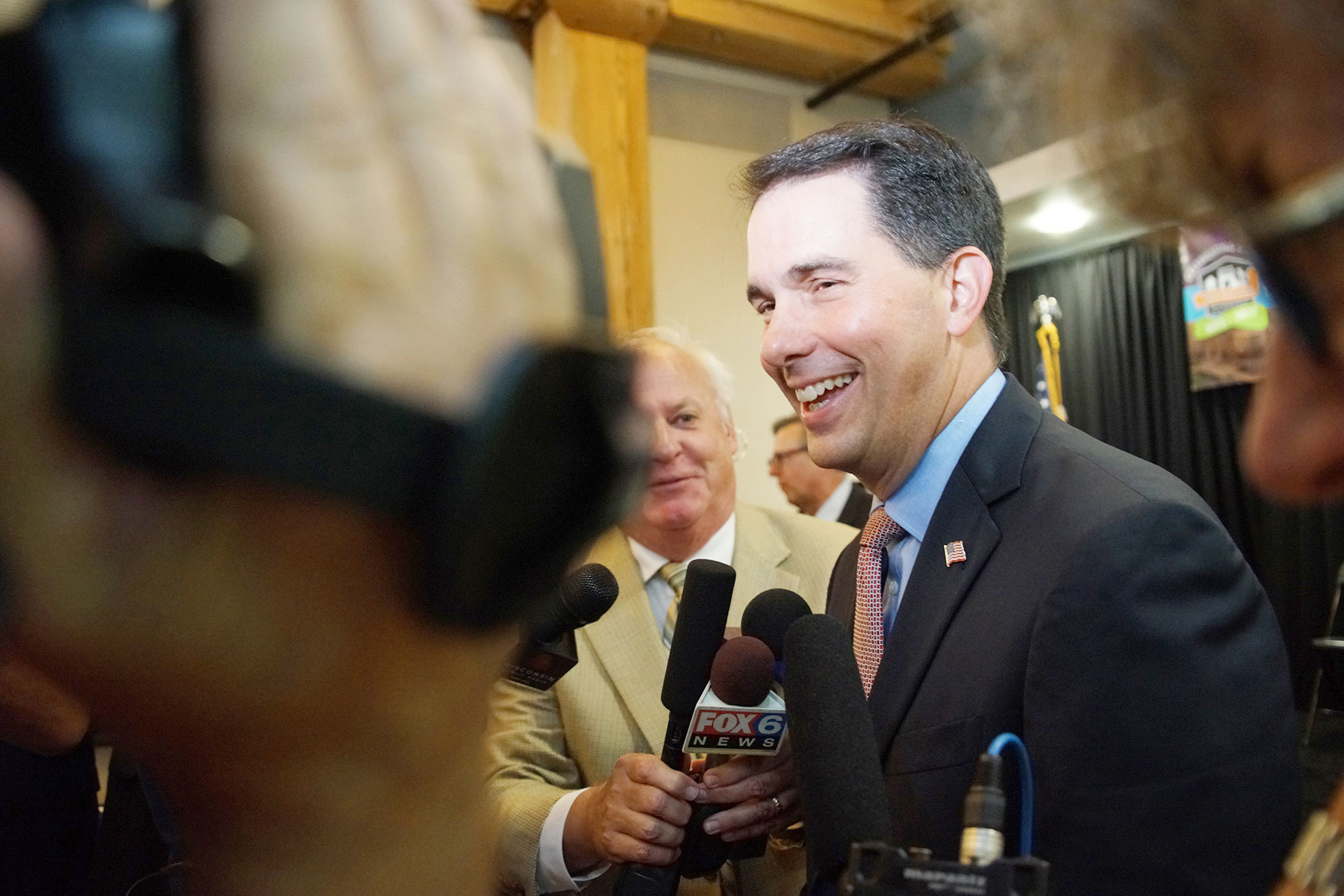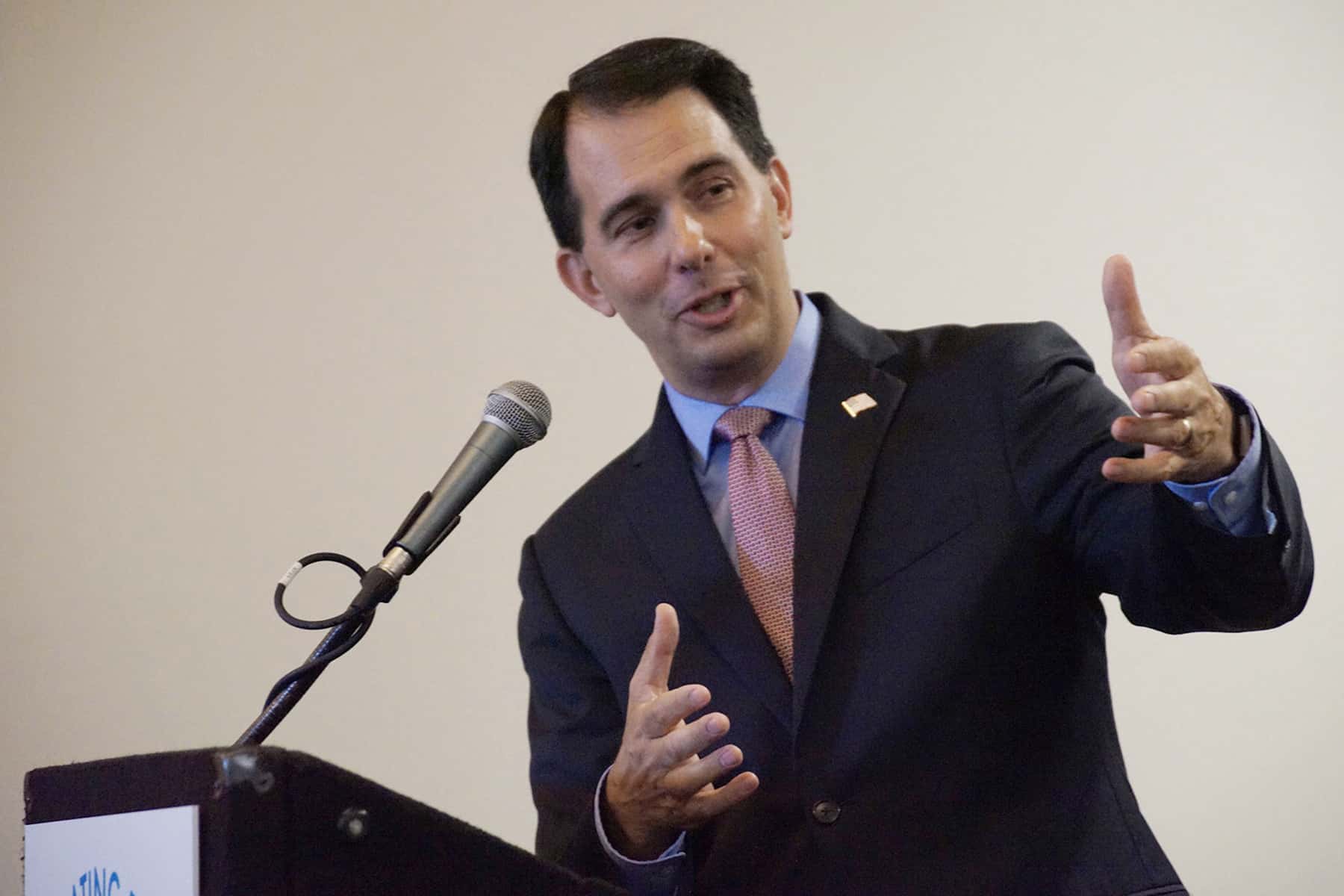
Scott Walker, Wisconsin’s outgoing Governor, signed a sweeping package of Republican-written legislation on December 14 that restricts early voting and weakens the incoming Democratic governor and attorney general, brushing aside complaints that he is enabling a brazen power grab and ignoring the will of voters.
Walker signed the bills just 24 days before he leaves office during an event at a state office building in Green Bay. He was urged by Democrats and Republicans, including Democratic Governor-elect Tony Evers and former Republican Governor Scott McCallum, to reject the legislation.
Walker, who was defeated by Evers for a third term, had earlier said he was considering partial vetoes, but he ultimately did not strike anything.
Evers accused Walker of ignoring and overriding the will of the people by signing the bills into law. Evers said in a statement, “This will no doubt be his legacy.”
Democrats and liberal advocacy groups are expected to sue within days over the bills, which was pushed through the Republican-controlled Legislature during a lame-duck session last week.
Republican leaders and Walker moved forward with the proposals immediately after Evers defeated the GOP governor as part of a Democratic sweep of statewide offices in the midterm election. The push is aimed at safeguarding conservative policies put in place during Walker’s eight years as governor and mirrors tactics used by Republicans in North Carolina in 2016. Republicans in Michigan are weighing similar moves.
The Wisconsin bills focus on numerous Republican priorities, including restricting early in-person voting to two weeks before an election, down from as much as nearly seven weeks in the overwhelmingly Democratic cities of Milwaukee and Madison.
The legislation shields the state’s job-creation agency from Evers’ control until September and limits his ability to enact administrative rules. The measures also would block Evers from withdrawing Wisconsin from a multi-state lawsuit challenging the Affordable Care Act, one of his central campaign promises.
The legislation imposes a work requirement for BadgerCare health insurance recipients, which Walker won federal approval to do earlier this year, and prevents Evers from seeking to undo it.
It eliminates the state Department of Justice’s solicitor general’s office, which outgoing Republican Attorney General Brad Schimel used to launch contentious partisan litigation. Doing away with it ensures Democratic-Attorney General-elect Josh Kaul can’t use the office to challenge Republican-authored laws.
The bills also allow lawmakers to intervene in lawsuits, ensuring Republicans will be able to defend their policies and laws in court if Kaul refuses to do it. Kaul also would need approval from the Legislature’s budget-writing committee before he can reach any settlements, further increasing the power of that GOP-controlled panel.
The Republican-controlled Legislature introduced and passed the bills less than five days after unveiling them late on a Friday afternoon two weeks ago. Outraged Democrats accused the GOP of a power grab that undermined the results of the November election. Evers and others have argued Walker will tarnish his legacy by signing the bills, and Kaul has predicted multiple lawsuits challenging the legislation.
Walker’s signing of the bills comes a day after he announced a $28 million incentive package to keep open a Kimberly-Clark Corp. plant in northeast Wisconsin. One of the lame-duck bills would prevent Evers from making such a deal, instead requiring the Legislature’s budget committee to sign off.
Laurel White
Lee Matz
Originally published on Wisconsin Public Radio as Walker Signs Bills Limiting Gov.-Elect Tony Evers’ Power















